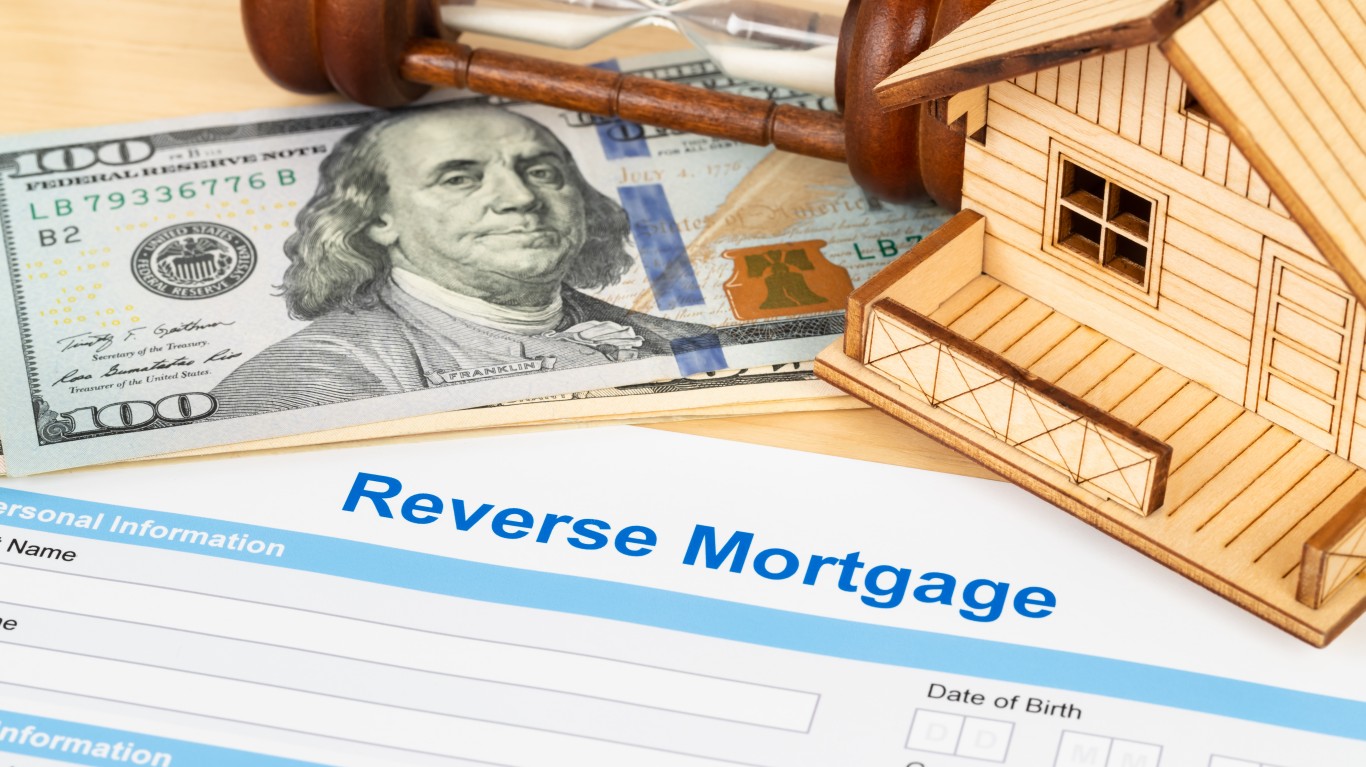Personal Finance
I'm a 63 year old widow with $1.1 million in my 401k and I just retired - should I consider a reverse mortgage?

Published:

Reverse mortgages can make a lot of sense for many retirees who could use a bit of a cash jolt. Undoubtedly, there are potential downsides to consider before even thinking about signing a contract. For such a complicated move that’s not free from risks, the advice of a financial adviser is an absolute must. In any case, let’s check in on a Reddit case involving a 63-year-old retired widow with a sizeable $1.1 million sum in a 401k. They’re wondering if a reverse mortgage could be the right financial move for them.
Indeed, those reverse mortgage commercials can certainly be tempting to a retiree who owns their own home but has a rather limited cash flow coming in from their passive income sources (think pensions and all the sort). Before doing so, though, the pros and cons must be fully understood. Is the added cash flow worth a reduction in home equity and the potential fees along the way?
As always, the trade-off will be worth making for some, not for others. Perhaps reaching out to a certified tax professional after meeting a financial adviser is a good idea. It’s my humble opinion that someone with a $1.1 million 401k nest egg has plenty of options that should be considered before committing to getting a reverse mortgage. Indeed, $1.1 million is not a small amount of money, so this retiree isn’t exactly in a tough financial spot.
Most notably, withdrawing funds on a systematic basis (gradually over time) from a 401k can make sense. And if there are other accounts, starting a passive income stream could be an idea worth considering.
There’s a great deal of wealth in the 401k. Still, some folks, even retirees, just don’t want to feel the pains that come with tapping into the retirement nest egg. Either way, an adviser can help you strategize as you consider looking to leverage your 401k to jolt your cash flow situation.
Like with the reverse mortgage, there are downsides to taking money out of your 401k. Most notably, nobody wants to cause a tax burden. Further, by effectively cracking open one’s retirement nest egg, one opens the door to potentially running out of money in the future, a top fear many retirees possess, especially in their earlier golden years.
Given these cons, which may outweigh the pros in some cases, I can’t stress enough how important it is to consult a financial adviser for cases that require one to give themselves a passive income boost in retirement.
Another option is to construct a passive income stream with dividend stocks. Of course, time will tell if value and dividend stocks will catch up to their more exciting, high-growth counterparts. Either way, there are a number of interesting options that can help one jolt their passive income without having to spend down any principal.
Shares of telecom firm Verizon (NYSE:VZ) currently boasts a 6.4% dividend yield, which is now far more attractive than rates on short-dated bonds. Indeed, there are risks that comes with investing in stocks. However, with a modest multiple (18.3 times trailing price-to-earnings), I’d argue that retired investors looking to explore alternative income options should give the name, and many dividend payers like it a good look.
With a $1.1 million nest egg, I’d argue that there are numerous alternatives that should be considered before going down the route of a reverse mortgage. Once you’ve had a chance to analyze the upsides (flexibility) and downsides, while running ideas with a financial pro, only then would I make my move.
Retirement can be daunting, but it doesn’t need to be.
Imagine having an expert in your corner to help you with your financial goals. Someone to help you determine if you’re ahead, behind, or right on track. With SmartAsset, that’s not just a dream—it’s reality. This free tool connects you with pre-screened financial advisors who work in your best interests. It’s quick, it’s easy, so take the leap today and start planning smarter!
Don’t waste another minute; get started right here and help your retirement dreams become a retirement reality.
Thank you for reading! Have some feedback for us?
Contact the 24/7 Wall St. editorial team.